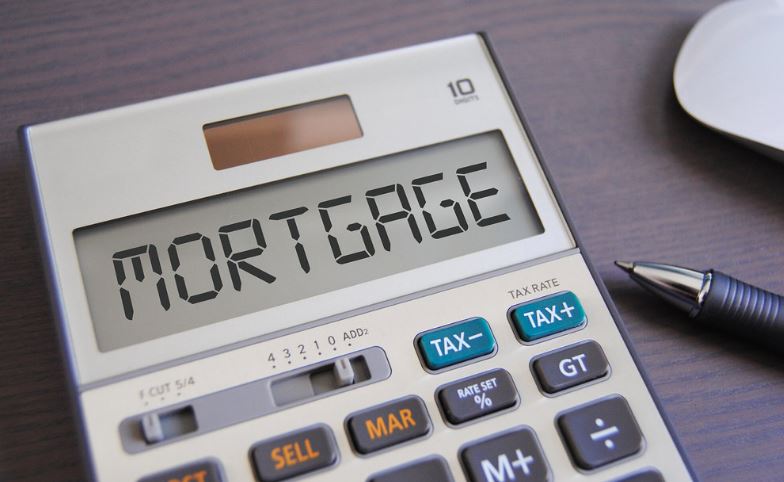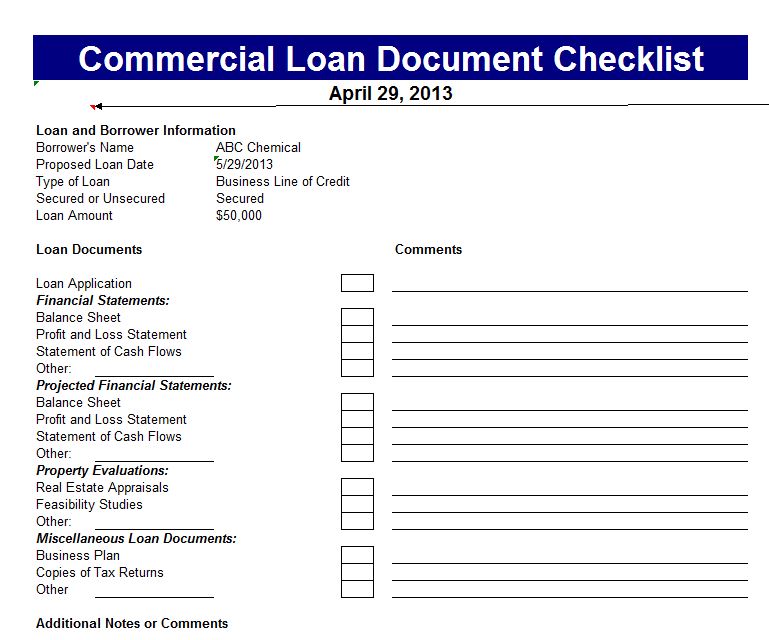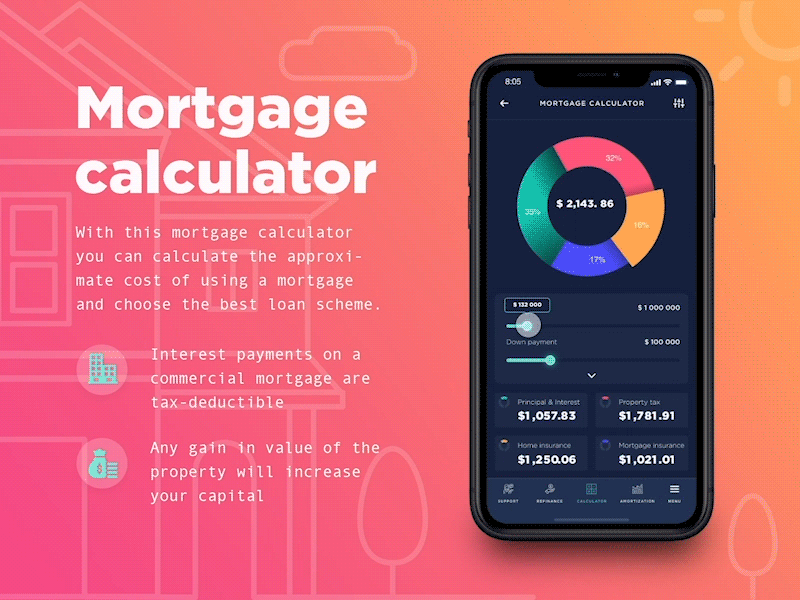

A longer amortization period can be obtained from lenders, such as BDC, to help businesses protect their cash flow. The size of a down payment required is closely related to the loan-to-value ratio, which determines the maximum amount of a secured loan based on the market value of the asset pledged as collateral.Ĭommercial mortgages are usually amortized over a period of 20 years or less and repaid in regular instalments.
#COMMERCIAL MORTGAGE CALCULATOR FREE#
However, if you’re intending to put down the minimum (to free up working capital), you’re likely looking at a down payment representing 20% or more of the purchase price, although it can be higher or lower depending on the lender, the financial health of your business and the building you are trying to purchase. It’s a good idea to put down as much as you can afford, especially during times of rising interest rates. The more you put down, the less you need to borrow-and the less interest you will pay over the life of the loan. How much down payment is needed on a commercial property? Kelley notes that if you’re a buyer, another motivating factor can be pride of ownership: You may prefer to invest in, maintain and improve your property in ways that would not make sense if you were leasing. Buying the location and developing it could offer an additional revenue stream. It could be attractive to various companies because of such things as size, amenities, foot traffic, equipment and proximity to key suppliers. You’ve found the perfect location for another business.In addition, they would expect you to undo those changes at your own expense once you leave. The average landlord won’t pay for the specialized construction needed for scientific research or manufacturing. You need to equip your property for a highly specialized purpose.Owning commercial real estate can help you build equity as the property’s value rises. You want to use your business property to grow your personal wealth.When commercial real estate costs are high, buying can free up working capital by reducing your monthly rent costs. You’re facing landlord-imposed restrictions or steep rent increases.Why consider a commercial mortgage?īuying commercial real estate can make sense for the following reasons. They will also expect you to pay off the loan balance in less time than would a homeowner. That means a bank will likely expect your down payment to make up a higher proportion of the property value. “A commercial building can be very specific to a business and what it needs,” says Kelley.Ĭommercial mortgages generally have lower loan-to-value ratios than residential mortgages, as well as shorter amortization periods. One thing that makes commercial mortgages riskier is that the property can be harder to liquidate. As a result, these loans tend to come with higher interest rates and other fees.

Kevin Kelley, a Senior Account Manager with BDC, says many of these differences come down to the fact that commercial mortgages are riskier for both lenders and borrowers.

You’re likely familiar with the concept of a residential mortgage, but there are some important differences between residential and commercial mortgages. But commercial mortgages are not without risk, so it’s important to evaluate the pros and cons of owning your property. Owning your place of business can give you more freedom to shape and control your operations and let you build wealth. Growth & Transition Capital financing solutions Kauffman Fellows Program Partial Scholarship Venture Capital Catalyst Initiative (VCCI) Industrial, Clean and Energy Technology (ICE) Venture Fund


 0 kommentar(er)
0 kommentar(er)
